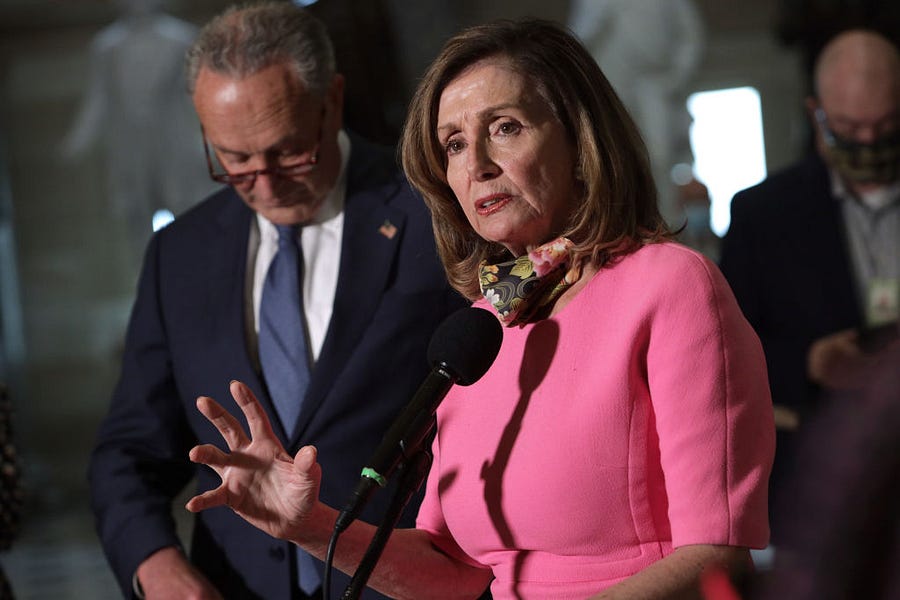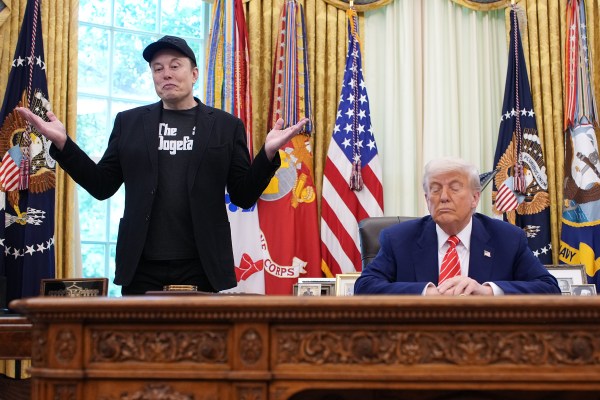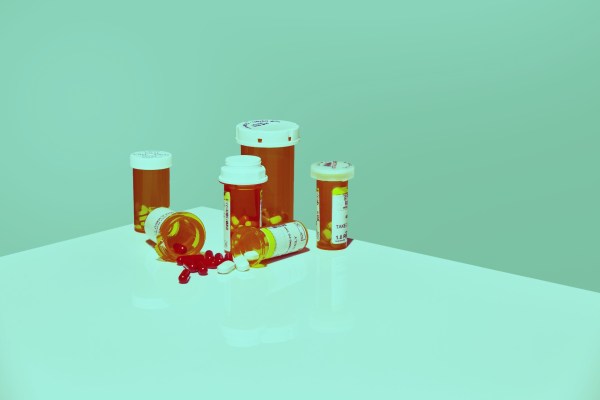Depending on where you spend your time on social media and which cable networks you watch, you might think that the GOP is taking the country to hell in a handbasket. The GOP is routinely criticized for its hypocritical leadership and the fractured state of the GOP is problematic for many. But new survey data make it absolutely clear that despite the people fleeing the Republican party aligning themselves with Democrats, the Democratic party is, in fact, equally and in some cases more disliked by Americans at the moment.
Neither Democrats nor Republicans are perceived to be meeting the needs of America well as we head into the November election. While many are unhappy with the Republican party, its leadership and its handling of COVID-19, it is a mistake to believe that the Democratic party is widely admired and that its policies are being embraced by most Americans—this is simply untrue.
Thanks to a new national study as part of AEI’s Survey Center on American Life, survey data not only shows that Americans have overwhelmingly negative views of both parties, but also that these ratings are far worse than the traditional favorability metrics that have been used for decades.
In fact, neither party garners a favorability rating better than 50 percent: Just 37 percent of Americans have a favorable or very favorable view of the Republican party; Democrats fare slightly better at 45 percent.
Putting these ratings into historical context, the Democratic party has generally held higher favorability ratings than the GOP over the past few decades. Throughout the 1990s and early 2000s, the Democratic party had favorability ratings as high as 61 percent. The GOP hovered a little lower, in the 50 percentile range, but the party saw a few spikes as high as 61 percent and as low as 30 percent during the same time frame. But since 2016, however, overall ratings have been low; 44 percent on average for the Dems from 2016 through September of 2020 and 40 percent for the GOP. Judging by the ratings today, not all that much has changed during the Trump administration.
There is a more telling metric about parties, however, and the survey explicitly asks: Do you feel that the policies of the Republican/Democratic party generally move the country in the right direction; are somewhat misguided but not dangerous; or are so misguided they pose a serious threat to the country?
The answers are not encouraging: 38 percent of Americans see the GOP being dangerous to the nation’s future, but a similar number (37 percent) feel the same way about the Democratic party. In contrast, only 31 percent of Americans believe that the policies of the GOP move the country in the right direction and another 27 percent feel the same way for the Democratic party. Talk about a vote of no confidence: That leaves a plurality of Americans who think that neither party will move the country in the right direction.
Of course, there are significant differences in how these questions are answered: 64 percent of Democrats see the GOP as being so misguided that it poses a serious threat to the country, compared with just 10 percent who feel the same for their party. For Republicans, only 6 percent see the GOP as misguided while 75 percent see the Democrats as misguided and threatening.
However, partisan numbers have been in decline and when looking at the bulk of Americans—independents and centrists—just 22 percent think the Republican party is moving the nation in the right direction and a lower 17 percent feel positive about the Democratic party. In short, the Democratic party is not as well-liked as many progressives seem to think.
Going further, the survey reveals some other less than encouraging facts about the state of the Democratic party in America today. Given research that shows that younger voters are more liberal on social issues, it’s unsurprising that the Republican party is not especially popular. Among Gen Z, just 19 percent think that the GOP’s policies move the nation in the right direction. What is more surprising is that just 21 percent of Gen Z feel that the Democratic Party moves the country properly. Millennials are a bit more charitable to both, but partisan differences are non-existent, with 27 percent for the GOP and 26 percent for the Democratic party. Younger Americans who are widely held to believe that the Democrats are better certainly do not feel that way when asked explicitly about party policy.
The data also show minimal variation across other demographic breakdowns such as income, education, and marital status. Coastal elites in New England and along the West Coast are not overwhelmingly positive on Democrats either; just 29 percent of those in New England and 31 percent on the West Coast believe that Democratic policies are moving the nation in the right direction. The figures are lower for Republicans, but what’s important is that even the traditional strongholds of liberal Democrats are not overwhelmingly supportive of the status quo.
The one area where there are some differences is by racial identity: 22 percent of whites like where the Democratic policy platform is going compared with 30 percent of Hispanics, 35 percent of Asians, and 49 percent of blacks. As for the Republican party, 39 percent of whites like the GOP’s policies compared with just 10 percent of blacks, 11 percent of Asians, and 24 percent of Hispanics.
My point here is simple: the Republican party has its troubles now, but the Democratic party is equally disliked by most Americans, and many liberals seem to be unaware of this fact. President Trump pointed out during the first presidential debate that Joe Biden lost the left wing of his party and Biden responded “The party is me. Right now, I am the Democratic party.” If Biden is correct, he and his advisers would be well-advised to consider the fact that only a small number of Americans believe that his party’s policies are moving the nation in the right direction and that progressives are on board. Americans are rejecting both parties at this moment, which opens the door for the right operative to craft a meaningful coalition and actually win the hearts and minds of voters.
Samuel J. Abrams is professor of politics at Sarah Lawrence College and a visiting scholar at the American Enterprise Institute.
Photograph by Alex Wong/Getty Images.






Please note that we at The Dispatch hold ourselves, our work, and our commenters to a higher standard than other places on the internet. We welcome comments that foster genuine debate or discussion—including comments critical of us or our work—but responses that include ad hominem attacks on fellow Dispatch members or are intended to stoke fear and anger may be moderated.
With your membership, you only have the ability to comment on The Morning Dispatch articles. Consider upgrading to join the conversation everywhere.